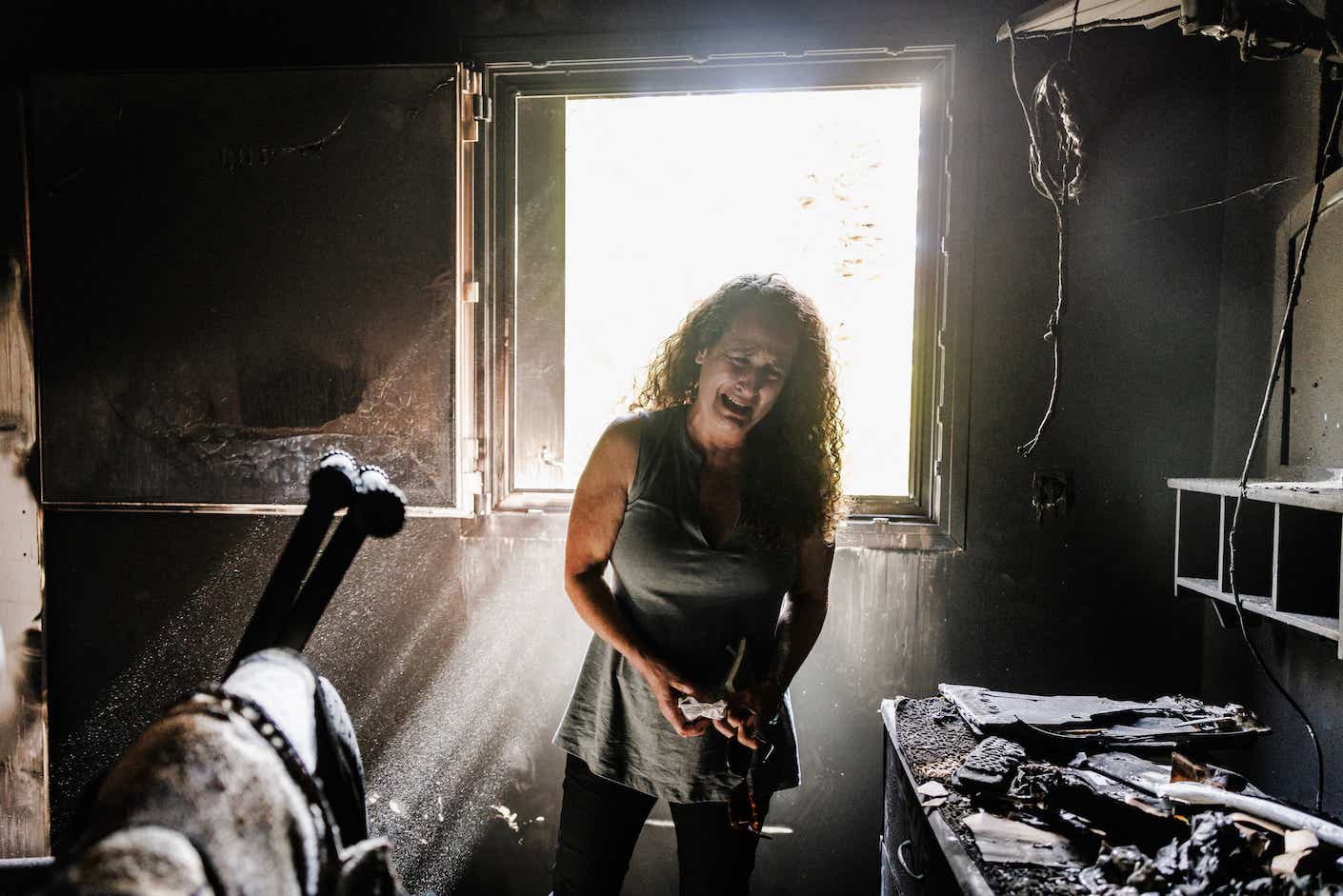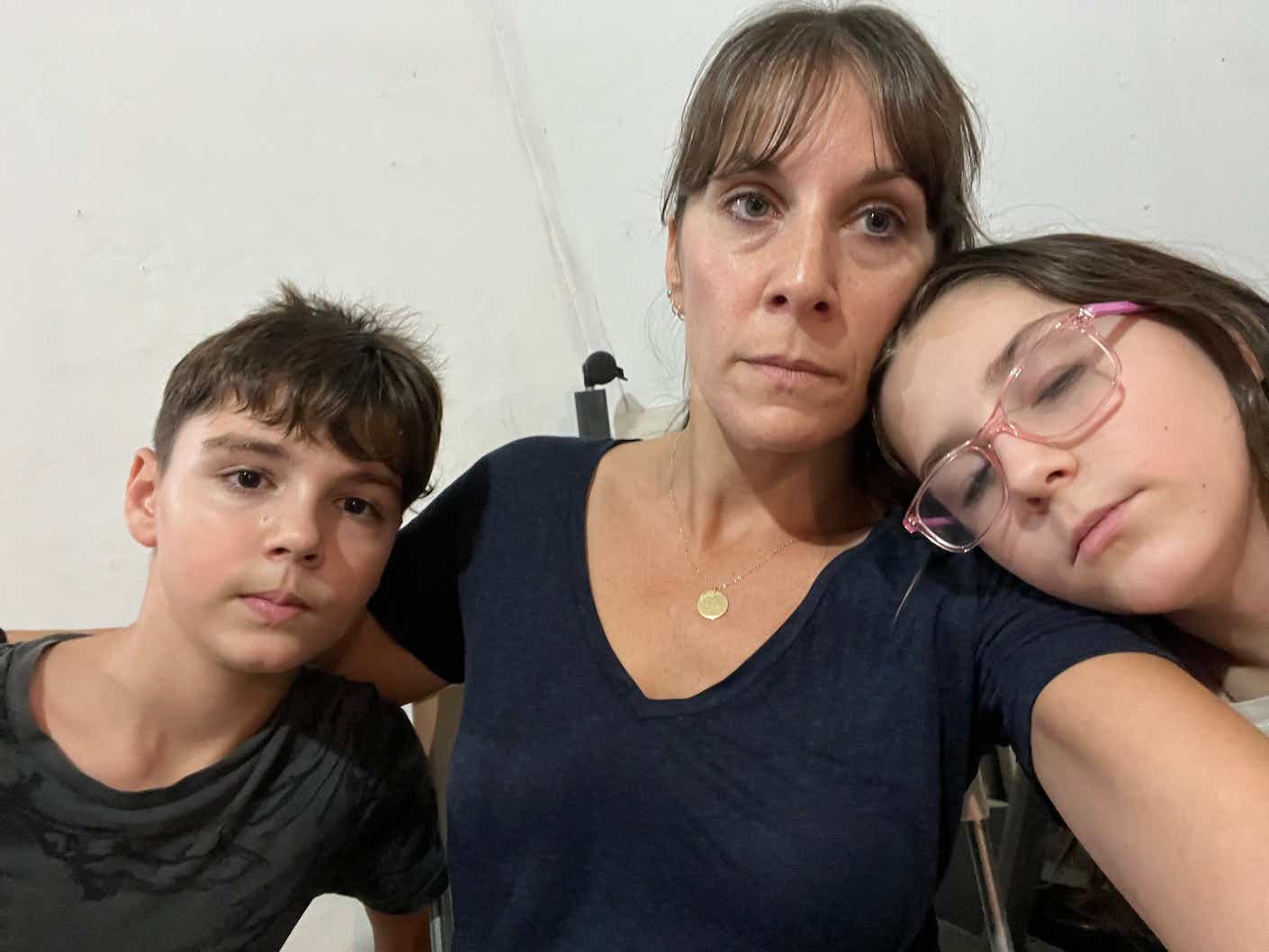To my children: Aviv, Maya, and Yuval,
I am not the same mom I was on October 6, the one who baked, read, and played with you, full of joy and optimism, a shield of safety. I am anxious, sad, and heartbroken.
Do you remember the moment it all changed? A piercing noise pulled us from our beds and propelled us out of the apartment north of Tel Aviv and down the stairs to the bomb shelter at 6:30 a.m. on October 7. Instinctively, my feet hit the ground and ran to each of you, pulling you from bed, barefoot and still warm from your sheets. We huddled in the bomb shelter, unaware that our lives had already been forever changed.
I have laid my ear on your chests every night since October 7, listening to each of your hearts beat, reassuring myself that you are here and safe, and feeling guilty because so many others are not. Because so many others were brutally murdered or taken hostage by Hamas on that day, including five of our family members: Carmela Dan (80), Ofer Kalderon (53), Sahar Kalderon (16), Erez Kalderon (now 12), and Noya Dan (13). They are among the 250 souls stolen that morning, and the 1200 lives extinguished in the most unimaginable ways possible.
Did you see us burst into tears, sitting on the porch on October 8 when we first saw the video of Erez in the hands of Hamas, watching the visual evidence of terrorists abducting the 11-year-old son of my cousin? He looked so much like you in that moment, Aviv.

Could you feel our hearts break when we learned, 10 days into the war, that Hamas terrorists had murdered Carmela and Noya? We tried to protect you from it; we didn’t turn on the news or show you the social media posts but you must have seen the tears leak from my eyes unbidden and felt that it was about more than the rockets threatening our safety.
That’s when we finally sat down to explain to a 12-, 10- and 7-year-old what a terrorist is. We talked about what it means to be kidnapped, because, for the first time in your lives, you learned the word ”hostage” and understood it referred to your cousins. “Now we understand,” you told me. “Now we know why we keep running to the bomb shelter.”

In the days that followed, your questions were too big, too hard:
Are the people that did this bad?
Should we hate them?
Why do they hate us?
Every night, you asked me, “Will Hamas come and steal us from our beds tonight?”
You didn’t see as people around the world began to remove their kippot (head coverings) and take down their mezuzot (door prayer) for fear of being identified as Jewish, but you felt something was wrong. When a news crew came to film us lighting the Hanukkah candles, an act of hope amid the darkness, you said you didn’t want to be on film. You didn’t want people to know you were Jewish, and to hate you because of it.
“Why be Jewish,” you asked, “when so many people hate us??”
Until now, we had always met your questions with facts, whether you asked about God, sex, or outer space. We had always offered as much information as we had, but my words were insufficient this time. So, acts replaced answers. We hung posters of the hostages in our neighborhood as people did the same around the world. We went to rallies every Saturday night to demand the release of all the hostages. We made signs for our soldiers to thank them for keeping us safe and remind them of who they’re fighting for. Judaism teaches us to value life over anything else and my answer was in our actions.
Then came the news we were all praying for: Erez and Sahar’s names were on the list of those to be released. For the first time in 52 days, we heard their mother, my cousin Hadas, scream with joy instead of pain. We sat, glued to our phones, watching as Hamas terrorists, draped in black and green and carrying machine guns, held them by the arms as they transferred them to the Red Cross.
My heart broke and filled with each breath. To see Erez and Sahar hold hands, to see their faces on the screen, to know they were alive and really coming home, but only in the hands of terrorists. They were coming home, but their father remained there, among so many other innocent civilians.
I may not be the same mom I was on October 6, but despite the heartbreak, I have found my words. Aviv, Maya, and Yuval: We should live big, beautiful, unapologetic lives full of the traditions that have been passed to us from our families in Russia, Poland, the United States, and Israel. We will never forget and we will never not choose life. Never again is now. We won’t rest until Ofer and every single hostage is home.









